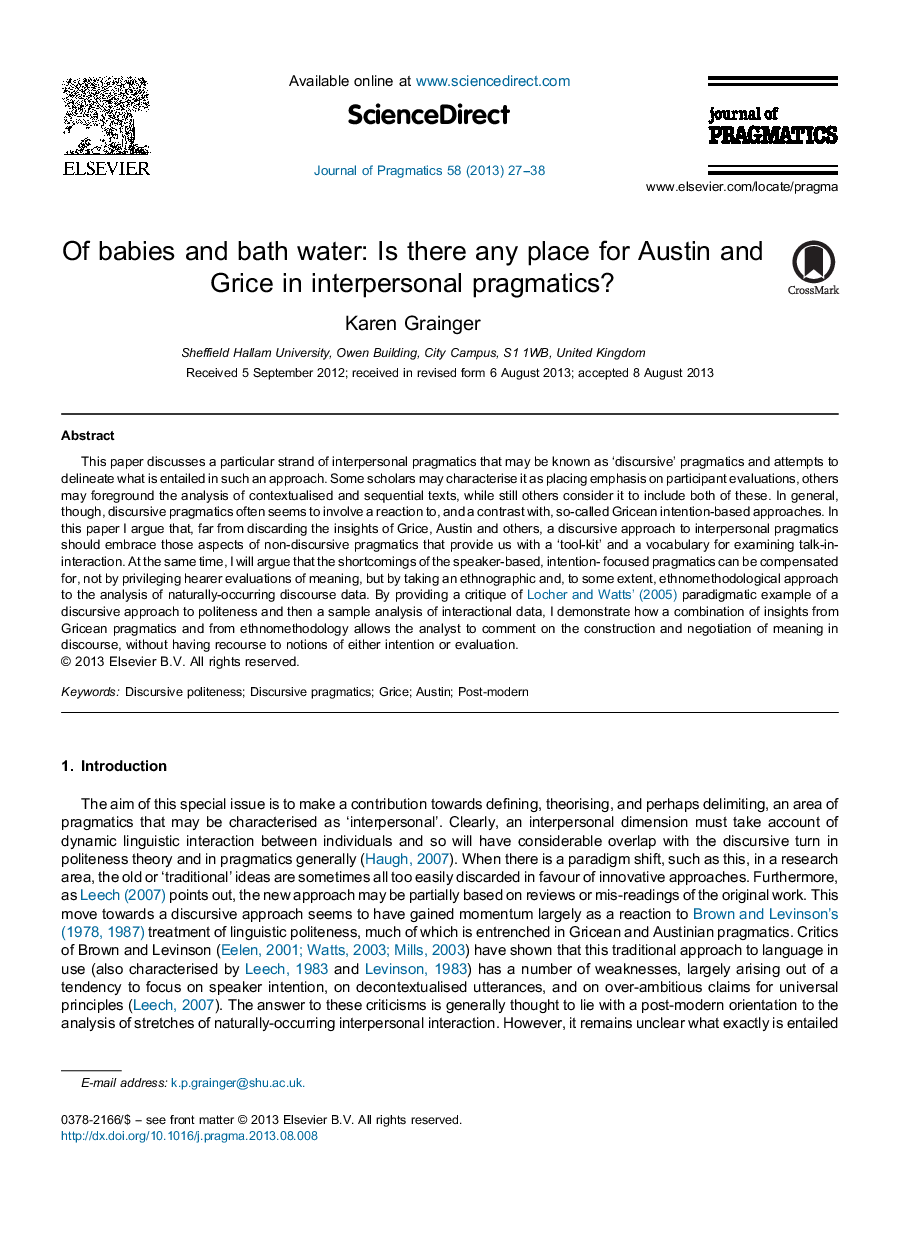| Article ID | Journal | Published Year | Pages | File Type |
|---|---|---|---|---|
| 932870 | Journal of Pragmatics | 2013 | 12 Pages |
•Discusses the role of traditional pragmatics in interpersonal pragmatics.•Austin's and Grice's contributions to discursive pragmatics remain valuable.•Also argues for an ethnomethodological approach to interpersonal pragmatics.•A critique of Locher and Watts’ (2005) approach to discursive politeness is provided.•An alternative analysis combines traditional pragmatics with ethnomethodology.
This paper discusses a particular strand of interpersonal pragmatics that may be known as ‘discursive’ pragmatics and attempts to delineate what is entailed in such an approach. Some scholars may characterise it as placing emphasis on participant evaluations, others may foreground the analysis of contextualised and sequential texts, while still others consider it to include both of these. In general, though, discursive pragmatics often seems to involve a reaction to, and a contrast with, so-called Gricean intention-based approaches. In this paper I argue that, far from discarding the insights of Grice, Austin and others, a discursive approach to interpersonal pragmatics should embrace those aspects of non-discursive pragmatics that provide us with a ‘tool-kit’ and a vocabulary for examining talk-in-interaction. At the same time, I will argue that the shortcomings of the speaker-based, intention- focused pragmatics can be compensated for, not by privileging hearer evaluations of meaning, but by taking an ethnographic and, to some extent, ethnomethodological approach to the analysis of naturally-occurring discourse data. By providing a critique of Locher and Watts’ (2005) paradigmatic example of a discursive approach to politeness and then a sample analysis of interactional data, I demonstrate how a combination of insights from Gricean pragmatics and from ethnomethodology allows the analyst to comment on the construction and negotiation of meaning in discourse, without having recourse to notions of either intention or evaluation.
